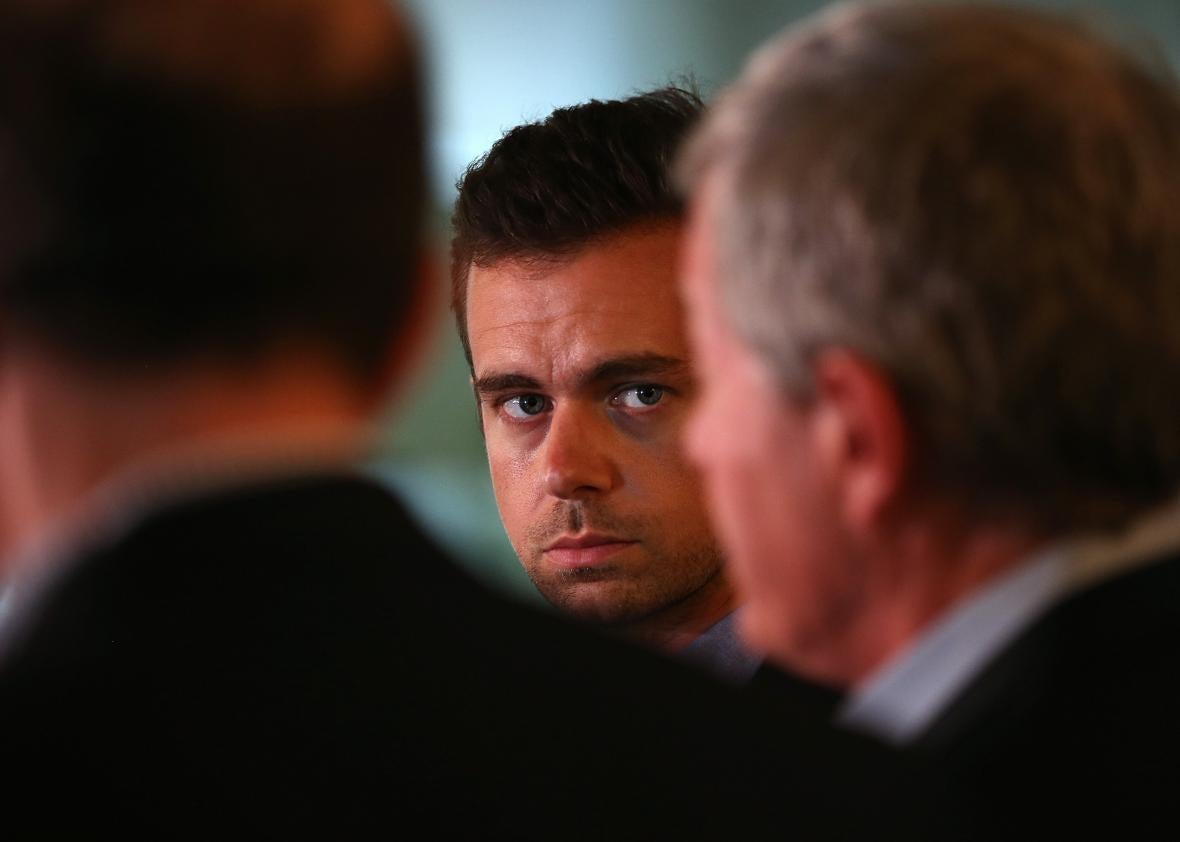Re/Code is reporting that Twitter will name co-founder Jack Dorsey as its permanent chief executive, perhaps as soon as Thursday. Dorsey, who has served as Twitter’s interim chief for the past three months, will also remain CEO of Square, the mobile-payments startup that he co-founded in 2009.
If that’s true, Twitter might finally get the decisive leader it needs to make the sort of bold changes investors have been clamoring for. On the other hand, Dorsey comes with armfuls of baggage, including a stormy history at the company and a second full-time job that will divide his attentions.
The Re/Code report cites only anonymous “sources,” which sometimes implies that the information is sketchy. But it carries a Kara Swisher byline, and no one in Silicon Valley has better anonymous sources than she does. Besides, the choice of Dorsey would surprise no one.
Dorsey co-founded Twitter in 2007 and was named its first CEO before being ousted the following year by co-founder Ev Williams over concerns over his focus and leadership skills. He went on to co-found Square, and as CEO he built it into a major success. The company was valued at $6 billion in its most recent funding round and is expected to go public later this year.
Meanwhile, Twitter became a global phenomenon and went public in 2013. Dorsey took on a more active role as executive chairman in 2011, when Dick Costolo replaced Williams as CEO. But user growth stalled under Costolo’s amiable leadership, and he stepped down in July under investor pressure.
Dorsey was a logical choice for interim CEO and was widely seen as a front-runner for the permanent job. There’s a school of thought that founders sometimes bring the internal legitimacy needed to alter a company’s course, by virtue of having conceived it. But Twitter’s board was reportedly divided, with some insisting that the company needed a chief who could devote his full attention to the company. Dorsey has also been painted as ruthless and mercurial in Nick Bilton’s book Hatching Twitter: A True Story of Money, Power, Friendship, and Betrayal.
As the search dragged on, however, it was becoming an embarrassment. Twitter suffered a rash of high-profile departures both before and after Costolo’s departure, its stock has been battered, and the company was perceived to be reeling. Perhaps the board decided it couldn’t afford to be quite so picky. Or, given Twitter’s tumultuous history and Dorsey’s reputation, perhaps there was a power struggle and the Dorsey faction prevailed.
Either way, Twitter users should brace themselves for some changes—and not just to its famous 140-character limit.
Previously in Slate:
